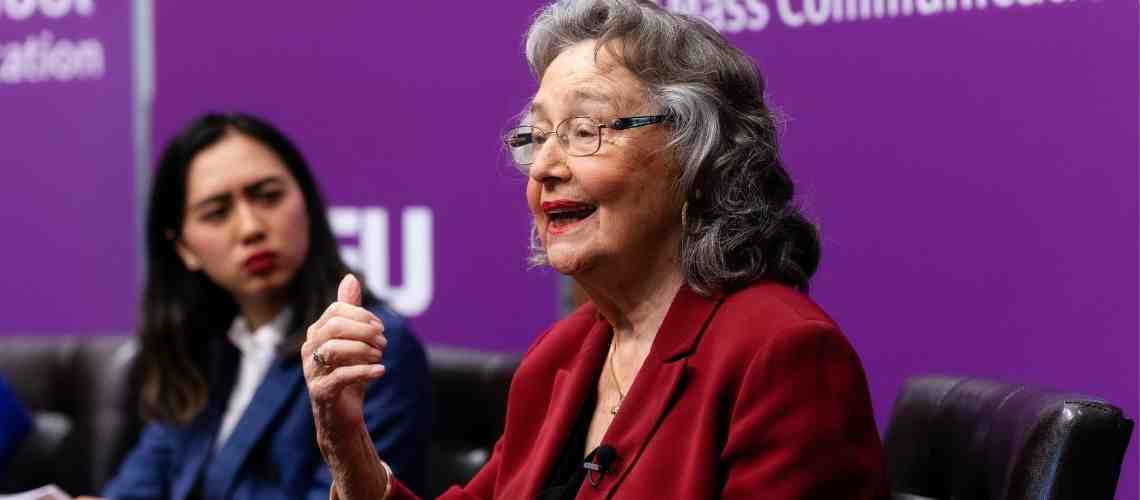Louisiana Women in Politics Oral History Project

Preserving the Past & Inspiring the Future
The Reilly Center for Media & Public Affairs, in partnership with universities across the state including lead partners at The Waggonner Center at Louisiana Tech University, Kathleen Babineaux Blanco Public Policy Center from the University of Louisiana at Lafayette, the Department of History at Xavier University of Louisiana, and the LSU T. Harry Williams Center for Oral History, is spearheading an effort to document and preserve the legacies of women pioneers in Louisiana’s political sphere.
Recording women’s first-hand perspectives not only provides a historical record from important public figures on some of Louisiana’s most notable chapters, but also their career reflections and how they navigated governing and legislating in sometimes unwelcoming territory. Their inspirational stories will serve as a resource for both scholars and future generations of women considering careers in politics.
Inspiration
Governor Kathleen Babineaux Blanco’s captivating video interview for the Reilly Center’s 2019 John Breaux Symposium, “Politicking While Female: The Political Life of Women,” documented her decades-long experience as an elected official and the only woman to hold the highest office in Louisiana. Underlying her informative accounts of pivotal moments for the state and for female leaders was the understanding that we would not have many more opportunities to hear from her. This realization was the catalyst for this endeavor. The project will honor the legacies of women who have served in elected office and provide a resource access their wisdom, knowledge, and experiences.
Why Oral History
Oral history interviews elicit the human interpretation of the past, complimenting and often complicating historical narratives, while providing a fuller understanding of traditional archival materials such as public records, photographs, diaries, and letters. Moreover, oral history provides an opportunity to document untold or forgotten stories and to credit underrepresented groups and people that may otherwise go unrecorded. While Louisiana women have served in elected office for decades, their presence is sparse even today, and their legacies go largely untold. Recording the perspectives of Louisiana Women in Politics will contribute to understanding women’s history in the state and Southern history more broadly.